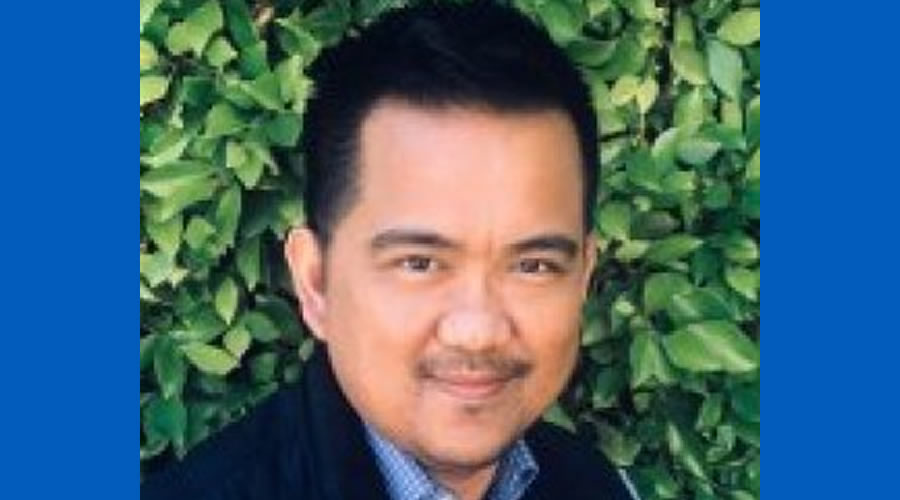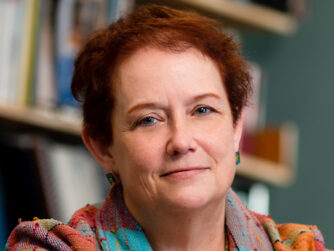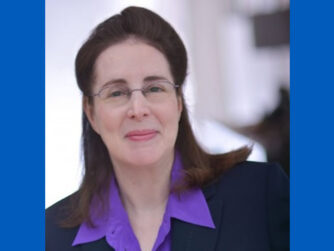R. Bong Vergara
In this episode our guest R. Bong Vergara describes how he utilizes innovation and social enterprise to build sustainable social impact and build wealth for impoverished communities. He weaves social and physical sciences perspectives to challenge conventional approaches and invites both social workers and citizens alike to move from being a technology consumer to a technological innovator.

R. Bong Vergara, MSW, MA, is an adjunct assistant professor at University of Southern California Suzanne Dworak-Peck School of Social Work. He formerly taught at UCLA and The California Endowment Health Exchange Academy. He primarily teaches courses in policy practice and applies social work solutions in the overlap between human and planetary health. He earned his undergraduate and graduate degrees from UCLA. He is currently a doctoral student at the University of Southern California Suzanne Dworak-Peck School of Social Work. Mr. Vergara developed and ran the “Safety Net of the Future” Initiative that served as the overarching initiative for a consortium of twenty-four health centers in Orange County, CA, earning him membership in then Congresswoman Loretta Sanchez’s (D-47) Health Reform Advisory Task Force. He has published a number of policy briefs and agency reports on community health and presented briefings before national convenings and conferences, including the Subcommittee on Populations of the National Committee on Vital and Health Statistics.
Interviewer: Gokul Mandayam, PhD






In the past I had conceptualized organizations that engage in social work practice or the promotion of social equity as being solely nonprofits. I had always thought that to be truly doing social work the activities would be altruistic and not seek profit through delivery of services. I see now that there are many models of service delivery and that each have their advantages. I also had never understood climate change as a social work problem. The way that Mr. Vergara explained the effects of climate change on human health as well as human enterprise was eye-opening for me. I always believed that climate change was an environmental health issue. I knew that environmental changes could affect the health of communities, but I never made the connection that intervention aimed at environmental sustainability would be empowering to communities that do not have the support of a large government or established human aid resources. In a time when large corporations are exploiting natural resources to the detriment of their surrounding communities, it is refreshing to hear about organizations that are working to promote equity and create innovative solutions that allow small or marginalized communities to thrive.
One thing I really wanted to highlight from this interview was how well the organization implemented trauma informed care in their services by allowing communities to take part in decision-making and problem identification so that the solutions offered by the organization are relevant and necessary for the community being served. I have always been of the mind that people should be allowed to decide for themselves what their most pressing issues are rather than being told by some outside agency with no concept of how a particular community functions socially. Also, I think it is worth noting that one of the individuals Mr. Vergara spoke about from southern California, while she didn’t possess a skill set that some might think is necessary to engage in the kinds of work she was doing with local farmers, what she did have was intimate knowledge of the problem these farmers were faced with and therefore was better equipped to help search for solutions. Understanding the target community or the key problem can be invaluable when trying to engage in social change and innovation.
This was very informative and I really appreciate your work
As a future social worker, I found Professor Vergara’s work to be inspiring in how it linked environmental issues with social ones and in finding solutions for both.
Professor Vergara shared information defining and conceptualizing social innovation and entrepreneurship. Professor Vergara explained how important social innovation and entrepreneurship to the field of social work with first hand experiences.
I greatly appreciated this perspective and believe in the importance of innovation for solving our world’s most complex social issues. I think that the social enterprise strategy is a worthwhile one to explore as it does not possess some of the constraints and barriers to change that exist in non-profits. Where in non-profit work there is a focus on measuring process goals to ensure fidelity, in social enterprise the focus is on outcomes. This allows for interventions to be dynamic and shift with the changing of times based on what will lead to the best outcomes. It also allows for the passionate social worker to not have to choose between providing for one’s family and improving the world, as a social enterprise is a wealth-building activity as much as it is geared towards facilitating positive change.
this is a fantastic project! it is also a great way to understand how social work can reach many areas and issues.
This podcast was insightful and informative. This topic is timely and important. Integrating technology to address global issues is necessary, given that our world relies on technology. Excellent!
This podcast was very informative and brought a great new perspective to social work! It is nice to hear ways that we can make money while also helping to improve the world.
This podcast was very informative and brought a great new perspective to social work! It is nice to hear ways that we can make money while also helping to improve the world.
Social work is not a field that makes you think of entrepreneurship, but Professor Vergara beautifully explains the intersection and importance when you combine the two. By integrating those two fields you are able to find alternative solutions to problems and help communities in ways that were not explored before.
Great podcast that highlighted how social workers can be involved in environmental discussions to solve issues such as poverty and access to resources.
This discussion was very enlightening for me. As many social workers are employed by nonprofit agencies, I appreciated the concept of social enterprise as a way of funding instead of the traditional fundraising model.
This podcast has allowed me to learn about social enterprises and how it is seen in the field of social work. Technology continues to expand today, and it is important to incorporate it into social work practice.
The discussion between Dr. Gokul Mandayam and Professor Vergara was incredibly informative and provides an important perspective on the intersection of social work and environmentalism. Additionally, Professor Vergara’s integration of technology to address global issues is incredibly astute.
The discussion between Dr. Gokul Mandayam and Professor Vergara was incredibly informative and provides an important perspective on the intersection of social work and environmentalism. Additionally, Professor Vergara’s integration of technology to address global issues is incredibly astute.
[PLS POST THIS VERSION. THANK YOU]
Cities, villages, and settlements of every kind have the same ambition as nations — to provide their people access to food, energy, and water free of pollution. Nowadays, this place-based ambition also includes being linked to the rest of the world through technology, especially with the push and pull toward smart sustainable urbanization. I find enabling smartness and ESG to be a great turning point opportunity for our field. It leverages our expertise in behavioral modification and change management as entry points into engineering and finance. It raises our game to engineer the world with the titans of industry (instead of villifying them), to mitigate climate change (instead of simply pushing for adaptation), and to embrace finance and profit (instead of our adversarial collective relationship with both). Cities, villages, and settlements are our clients, too; we should empower them to reach their vision of their better selves. That the fulfillment of their sustainability ambition leads to our professional transformation must mean it’s meant to be. Thank you for taking time to listen to the podcast and commenting after all these years.
Hello Vergara,
You recently read my masters thesis about Public-Private Partnership in Mbarara Municipality, Uganda. Glad to connect with you.
This was very informative! I appreciate Professor Vergara’s ability to offer valuable insight regarding the intersection of social work and environmental concerns.
As someone in the social work field, I found the discussion about environmental sustainability and the connection to social work interesting and informative. Professor Vergara’s knowledge was invaluable. Thank you.
As I start my career soon as a social worker, the podcast was informative for me as I learned more about environmental issues and how to be more involved.
I recently listened to this podcast and loved how it talked about how the author is using their knowledge and technology to solve social problems and make the world a better place to live. I highly recommend this podcast for anyone who is interested in learning about innovative ways to address social issues.
This podcast was very insightful and demonstrated how social work can reach many different areas in our communities. I appreciated Professor Vergara integrating technology into his practice. Technology is constantly evolving and it is critical that we use this knowledge and advancements to serve those in need.
This was very interesting and I am glad it was an assigned “reading”/assignment. Technology being integrated into social work has the capacity to do some amazing things.
This podcast opened my eyes to the idea of integrating social enterprise and innovation. His work with global issues of poverty along with environmental concerns and sustainablity thru using social enterprise along with innovation is truly inspiring.
I found this podcast interesting because it takes two concepts that are quite different, entrepreneurship and social work, and shows how you can connect the two and combine the strengths to achieve common goals. I also like how he emphasizes empowering “subordinated communities” who don’t always have access to these type of opportunities. I thought this was very informative and interesting!
I thought that this podcast was really informative and provided a lot of insight on how to utilize entrepreneurship to solve social and environment issues in the field of social work. His vision is inspiring and makes you realize just how far and wide the field of social work can branch out to.
It seems social work and for-profit organizations should not go together. I don’t see it any different than doing regular charity work.
It was very interesting to hear how technology could be utilized to help with poverty and also hear about the progression of his social work career. It is also interesting to see someone think outside the box a little to try and solve a systemic issue.
Very insightful interview regarding social innovation and entrepreneurship in social work.
This podcast was very informative, and I enjoyed learning about social innovation and enterprise. I think it is an important way to help our clients and their communities.
This podcast was very informative and great! This podcast provided a perspective on the intersection of social work and environmentalism. While also discussing entrepreneurship and social work and how to go about it jointly.